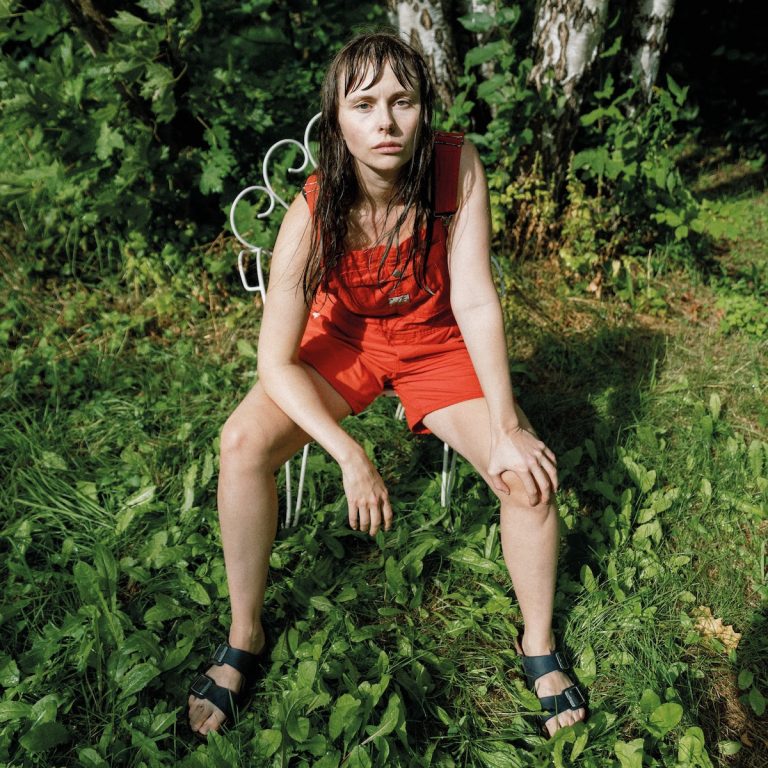Good and effective self-care involves digging up the past. To heal we need to acknowledge and face the problem, and not repeatedly bury it until it spreads like ivy across the masonry of our mind. Siv Jakobsen knows this. The Norwegian singer/songwriter knows the best route is to face haunting and recurring troubles face on. She did it on her last album, 2020’s balm-like A Temporary Soothing, personifying her creative spirit so as to understand it better. Her new record, Gardening, is the emotional equivalent of the titular hobby (which she was also doing alongside in her home in Oslo). “I was just raking through my mind and pulling stuff out, and then it grew back again, so I pulled it out again,” she explains.
And like pulling out weeds and tending to soil, the damage done isn’t always apparent until you get fully into it. Jackobsen has a calm and gentle voice, and on the surface her songs are pillowy acoustic-led numbers that appear as gentle as faint gusts of wind. Tracks like “Most Of The Time” and “Gardening” wear handsome Carrie & Lowell-esque fingerpicked acoustic guitars, but like tracks from that Sufjan Stevens album, there is a quiet devastation at play. On the two tracks mentioned – and indeed across most of Gardening – Jakobsen reckons with the past as it haunts her. The image of an abusive ex appears to her outside the window at her friend’s place on “Romain’s Place”; “Most Of The Time” has her trying to imagine life without a lingering presence as she timidly pines “I wanna know what it feels like to be alone without you in my mind”; and on vulnerable opening track “Small” tragedy breaks from the softly strummed guitars as she sings “I don’t want to feel this small anymore.”
Jakobsen is something of a double threat with her songwriting. She’s able to lull you into a sense of calm and let crushing lyrics pass you by without note. Amid the twinkling harp on final track “The Bay” a floating body appears while on the swaying “Birthday” she’s “downing dark and stormys to appease the lonely.” Equally she can paint with detail that is impossible to ignore but effective at capturing a full picture. “Blue” is a tragic tale of domestic abuse that doesn’t shy away from harrowing details (“I didn’t mean to lose my cool / I didn’t mean for my fist to leave you blue”), and even though it’s a fictional loveless couple Jakobsen is singing about over brushed drums and dreamy harps, the gut-wrenching effect is still full on.
Funnily enough it’s the album’s lightest moments that fare the worst here. “Tangerine” describes a woman yearning to be wanted by anyone looking in on her, but tangles itself up in imagery and similes. “Sun, Moon, Stars” is the album’s most hopeful note, an indirect ode to guest vocalist Ane Brun and how she has inspired Jakobsen; “You are the reason that I am alive / You are the sun and the moon and the stars,” they sing in delicate unison. While the song is perfectly pleasant in passing, it’s also the most forgettable of all the arrangements here. Even the two small reprises across the album are more memorable, “Gardening (Reprise)” in particular for the Fossora-like bobbing woodwinds playing around each other.
And those woodwinds creep up throughout the album, along with strings, cloudlike horns and light percussion. They add a baroque edge to Jakobsen’s arrangements, often softening the blow of her lyrics – but equally producers Hans Olav Settem and Simen Mitlid know to pull away when the moment calls for it. The bookending tracks, “Small” and “The Bay”, were the last of the songs of the album to be recorded, and Jakobsen retreated to a wooden cabin in the outskirts of Oslo to capture them. In the lonesome moments with just Jakobsen and her guitar (and flittering birdsong in the background), it feels like we are intruding as she reckons with the full weight of the album’s content. They are light moments but simultaneously very heavy.
On the gorgeous title track she captures the album’s thematic core, the endless cycle of pulling out the weeds of her mind only for them to resurface. Jakobsen doesn’t pretend to be done, or that there is a neat and happy ending to it all. She still worries as the past manifests itself in her head. “When the truth spills out of my nervous mouth / I look over my shoulder / You’re still over my shoulder,” she concludes. Similarly on “Bad By Design” she acknowledges “it resides in the deep of your mind / The shit you survived.” It’s all part of the self-care process though. Now the problem has been identified, Gardening will hopefully act as a cathartic weed killer to help from having to continuously dig up the past.

